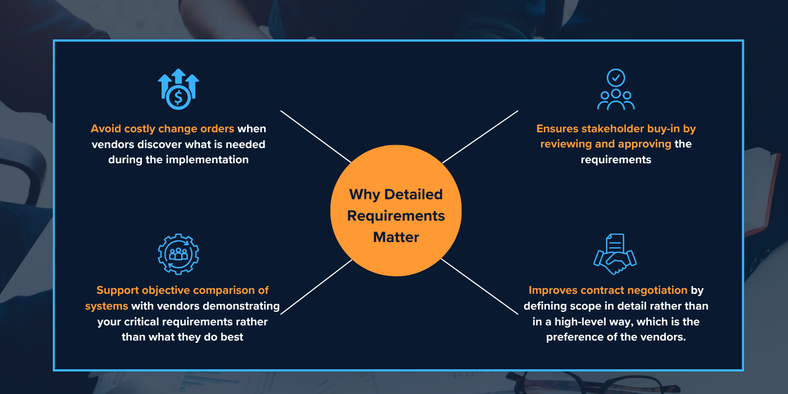There are times when defining requirements for an ERP selection process that our client would question the effort and think that we are too much in the weeds and should save this detail when evaluating the systems and implementing the system. A leaner approach does make sense for standard requirements, but if the client has complexity and unique processes, then detailed requirements are worth the effort to:
- Avoid costly change orders when vendors discover what is needed during the implementation
- Support objective comparison of systems with vendors demonstrating your critical requirements rather than what they do best
- Ensures stakeholder buy-in by reviewing and approving the requirements
- Improves contract negotiation by defining scope in detail rather than in a high-level way, which is the preference of the vendors.
However, not all requirements are critical and there’s no point in wasting time about these requirements. Our approach is only to ask the vendors to respond to the critical requirements (20% on average). This will improve engagement by the vendors and save time for the vendor and the client, who don’t need to answer questions about non-critical requirements. Later, in the selection process, the vendor will rapidly respond to all the requirements when there are only 2 vendors still under consideration.
Although it’s tempting to simplify the requirements process, do so at your peril.

